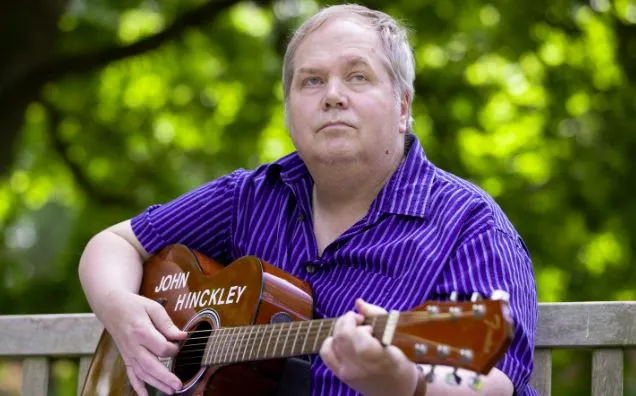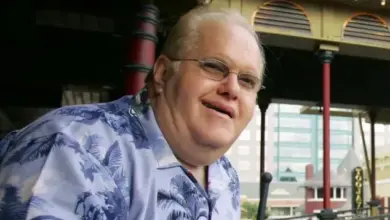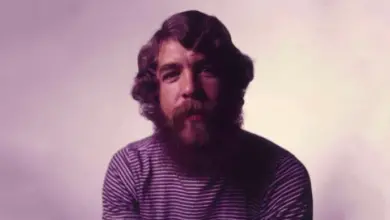
John Hinckley Jr. Net Worth and Bio From History to Wealth
John Hinckley Jr. is an infamous figure in American history, primarily known for his assassination attempt on President Ronald Reagan in 1981. His obsession with actress Jodie Foster drove him to act in ways that not only altered his life but also profoundly impacted U.S. politics and the legal system. Hinckley’s story intertwines themes of mental health, celebrity obsession, and legal reform. This article delves into his background, the events surrounding his criminal act, and an analysis of his net worth and current financial status.
John Hinckley Jr. Net Worth and Financial Situation
| Category | Musicians |
|---|---|
| Net Worth | $1 Million |
| Birthdate | May 29, 1955 |
| Birthplace | Ardmore, Oklahoma, United States. |
| Profession | American Singer and Songwriter. |
| Height | 5’7″ / 174cm |
| Weight | 180lbs / 80kg |
John Hinckley Jr.’s financial situation reflects the unique circumstances of his life, shaped by his criminal actions, legal battles, and ongoing psychiatric care. His net worth, while modest compared to other high-profile figures, provides insight into his financial status and the factors influencing it.
John Hinckley Jr. Estimated Net Worth
As of 2024, John Hinckley Jr.’s net worth is estimated to be $1 million. This relatively modest sum is largely attributable to:
Savings: Hinckley’s net worth primarily consists of personal savings accumulated over the years. This includes funds from any financial support he might have received from family and friends.
Financial Support: Given his legal and psychiatric status, Hinckley has not been able to generate significant income through employment or business ventures. As such, financial assistance from family and support networks has played a crucial role in sustaining his financial stability.
John Hinckley Jr. Financial Constraints
Several factors have influenced John Hinckley Jr.’s financial situation:
Legal and Psychiatric Limitations: Hinckley’s legal history and psychiatric condition have imposed significant restrictions on his activities. These limitations have prevented him from pursuing conventional employment or engaging in business ventures that could have increased his wealth.
Public Image and Restrictions: The notoriety of his criminal actions and subsequent legal constraints have kept him from participating in high-profile opportunities or public appearances that might have otherwise contributed to his financial standing.
John Hinckley Jr. Absence of Business Ventures
John Hinckley Jr. has not been involved in any notable business ventures or significant public appearances. This absence of commercial activity is due to:
Legal Restrictions: Hinckley’s legal status has largely prevented him from engaging in business activities. Restrictions imposed by his conditional release and ongoing psychiatric evaluations limit his ability to participate in income-generating ventures.
Public Perception: The controversial nature of his past actions has likely deterred potential business opportunities or public engagements that could have otherwise impacted his financial situation.
John Hinckley Jr. Support from Family and Friends
Throughout his legal and psychiatric challenges, Hinckley has received support from family and friends. This support has been vital in maintaining his financial stability. It includes:
Financial Assistance: Family and friends have provided financial assistance to help cover living expenses and other needs. This support has been crucial in ensuring that Hinckley remains financially stable despite his limited opportunities for generating income.
Emotional and Practical Support: In addition to financial help, the emotional and practical support from his loved ones has played a significant role in his overall well-being and ability to navigate his restricted lifestyle.
John Hinckley Jr. Early Life and Background
John Warnock Hinckley Jr. was born on May 29, 1955, in Ardmore, Oklahoma. His parents, John Warnock Hinckley Sr. and Jo Ann Hinckley, provided a stable middle-class upbringing. John Sr., a successful oil executive, and Jo Ann, a homemaker, raised their children with a focus on traditional values and stability.
John Hinckley Jr. Childhood and Family Dynamics
As the son of a prominent oil executive, the Hinckley family experienced a somewhat privileged lifestyle. However, this came with the challenges of frequent relocations due to John Sr.’s job requirements. The family moved several times across different states, including Texas and Colorado, before finally settling in Denver, Colorado. These relocations often disrupted Hinckley’s education and social life, contributing to a sense of instability during his formative years.
John Hinckley Jr. Education and Early Indicators of Emotional Instability
John Hinckley Jr. attended various schools due to his family’s frequent moves. Academically, he was an average student with no exceptional achievements or failures. Despite his ordinary academic performance, Hinckley displayed early signs of emotional instability. Reports from his childhood indicate that he struggled with social interactions and often exhibited withdrawn behavior. His family and friends noted periods of isolation and difficulty in forming lasting relationships, which became more pronounced as he entered adolescence.
John Hinckley Jr. Family Influence and Upbringing
Hinckley’s upbringing was influenced by his family’s expectations and the pressures of their socioeconomic status. His father’s demanding career and the constant moves created a stressful environment that may have contributed to Hinckley’s psychological challenges. The family’s efforts to maintain a semblance of normalcy and success may have inadvertently exacerbated his emotional struggles.
John Hinckley Jr. Teenage Years and Obsession with Celebrity
As Hinckley entered his teenage years, his emotional difficulties became more evident. His obsession with celebrity culture, particularly his fixation on actress Jodie Foster, began to take shape during this period. Hinckley’s fascination with Foster and his subsequent stalking behavior were indicative of deeper psychological issues that would later play a crucial role in his infamous attempt on President Ronald Reagan’s life.
John Hinckley Jr. The Assassination Attempt
On March 30, 1981, John Hinckley Jr. executed a bold and chilling attempt to assassinate President Ronald Reagan outside the Washington Hilton Hotel. Armed with a .22 caliber revolver, Hinckley fired six shots at the President, who was leaving the hotel after a speech. One of the bullets ricocheted off the limousine and struck Reagan in the chest, narrowly missing his heart. James Brady, the Press Secretary, sustained severe injuries and permanent disability from the attack. The attack also injured two police officers, Thomas Delahanty and Robert Wanko.
Hinckley’s motives were deeply entwined with his obsession with actress Jodie Foster. He had been stalking Foster for months, believing that committing such a high-profile crime would gain her admiration and affection. His fixation was compounded by his mental health issues, which were not fully understood at the time. The shooting shocked the nation and highlighted the risks associated with mental illness and public safety, leading to significant legal and psychological scrutiny.
John Hinckley Jr. Legal Proceedings and Insanity Defense
After his arrest, John Hinckley Jr. underwent a highly publicized trial where prosecutors charged him with attempted murder. His defense team argued that he was not mentally competent to stand trial and lacked the intent to kill due to severe psychological disorders. They aimed to show that Hinckley’s actions stemmed from delusional beliefs rather than criminal intent.
The jury ultimately found Hinckley not guilty by reason of insanity, a verdict that stirred considerable controversy and debate. He was committed to St. Elizabeths Hospital in Washington, D.C., where he underwent extensive psychiatric treatment. The case brought the insanity defense into the spotlight, prompting debates about its application and leading to changes in legal standards and the handling of similar cases. Hinckley’s confinement and the legal ramifications of his trial became a focal point in discussions about mental health and criminal responsibility.
John Hinckley Jr. Release and Current Status
After more than 30 years in psychiatric care at St. Elizabeths Hospital, John Hinckley Jr. was granted conditional release in 2016. This decision marked a significant shift in his legal status, allowing him to live outside the hospital under strict conditions. His release was subject to regular mental health evaluations and restrictions on his movements, reflecting ongoing concerns about his stability and public safety.
As of recent updates, Hinckley lives a relatively low-profile life, largely staying out of the public eye. His current existence is characterized by a degree of privacy and limited interaction with the media. The conditions of his release ensure that he remains under supervision while maintaining a semblance of normalcy in his daily life. Despite his controversial past, Hinckley has largely retreated from the public sphere, focusing on a quieter, more controlled lifestyle.
John Hinckley Jr. Impact on Legal and Mental Health Reforms
John Hinckley Jr.’s case had a profound impact on the legal and mental health systems in the United States. The high-profile nature of the assassination attempt and the subsequent legal proceedings brought significant attention to the insanity defense and mental illness. The case highlighted the complexities involved in evaluating and adjudicating individuals with severe psychological disorders.
In response to the case, several reforms were implemented to address concerns about the insanity defense and its implications. These reforms included changes to legal standards for determining insanity and increased scrutiny of mental health evaluations in criminal cases. Additionally, the case contributed to a broader awareness of the intersection between mental health and criminal justice, influencing policies and practices related to the treatment and management of individuals with severe mental health issues.
Conclusion
John Hinckley Jr.’s life story is a complex and multifaceted one, defined by a dramatic and infamous event that irrevocably changed his path and had far-reaching implications for U.S. legal and mental health systems. The assassination attempt on President Ronald Reagan not only thrust Hinckley into the national spotlight but also sparked a significant debate about the insanity defense and mental health treatment in the criminal justice system. His actions and subsequent legal battle raised critical questions about how society addresses mental illness, leading to reforms aimed at improving the handling of similar cases in the future.
Despite his notorious past actions, Hinckley leads a relatively obscure life with financial modesty. After decades of psychiatric care and a conditional release, he lives a quiet life away from the public eye. His financial situation reflects a modest existence, with no significant income sources or business ventures contributing to his wealth. Hinckley’s case continues to serve as a poignant reminder of the challenges faced by individuals with severe mental health issues and the ongoing need for reform in both legal and psychiatric practices.



